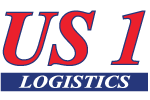Lawsuits have had a significant impact on the trucking industry in various ways. Here are a few examples:
- Increased insurance costs: Due to the potential for accidents and subsequent lawsuits, insurance costs for trucking companies have increased significantly in recent years. This can make it more challenging for smaller companies to compete in the market.
- Stricter regulations: To reduce the likelihood of accidents and lawsuits, the trucking industry is subject to increasingly strict regulations. This includes rules related to driver qualifications, vehicle maintenance, and hours of service. While these regulations are designed to improve safety, they can also increase costs for companies and make it more challenging for them to operate efficiently.
- Liability concerns: Trucking companies face a significant amount of liability when it comes to accidents involving their vehicles. This includes potential damages to other vehicles, property, and people. In some cases, lawsuits can result in significant financial settlements or even bankruptcy for the companies involved.
- Increased focus on safety: To avoid accidents and reduce the likelihood of lawsuits, trucking companies are placing a greater emphasis on safety. This includes investing in training programs, using new technologies to monitor driver behavior, and implementing stricter safety protocols.
Lawsuits have had a significant impact on the trucking industry, leading to increased costs, stricter regulations, and a greater focus on safety. While these changes can be challenging for companies to navigate, they are essential for reducing the risk of accidents and protecting the well being of drivers and other road users.
What is the major cause of lawsuits in the trucking industry?
There are several causes of lawsuits in the trucking industry, but the most common cause is accidents. Truck accidents can result in significant damages, injuries, and fatalities, and can lead to lawsuits against trucking companies, drivers, and other parties involved.
Some of the common factors that can contribute to truck accidents and subsequent lawsuits include:
- Driver error: This includes factors such as distracted driving, fatigue, speeding, and failure to follow traffic laws.
- Vehicle maintenance issues: Trucks require regular maintenance to ensure they are safe to operate. Failure to perform necessary maintenance can lead to accidents and subsequent lawsuits.
- Cargo loading and securement: Improper loading or securement of cargo can cause accidents and result in lawsuits.
- Road conditions: Poor road conditions, such as potholes or construction zones, can contribute to accidents involving trucks.
- Weather conditions: Bad weather, such as rain, snow, or fog, can make driving more challenging and increase the risk of accidents.
In addition to accidents, other causes of lawsuits in the trucking industry can include issues such as contract disputes, employment disputes, and regulatory violations.
What percentage of accidents are caused by big trucks?
According to the National Highway Traffic Safety Administration (NHTSA), in 2019, large trucks were involved in 4,119 fatal crashes, which resulted in 4,761 fatalities. Large trucks were also involved in 107,000 crashes that resulted in injuries and 363,000 crashes that resulted in property damage only.
Based on these statistics, it is estimated that large trucks are involved in approximately 9% of all fatal crashes, 4% of crashes resulting in injuries, and 2% of crashes resulting in property damage only. It is important to note that while large trucks are involved in a relatively small percentage of overall crashes, the potential for severe injuries and fatalities is much higher when trucks are involved, due to their size and weight.
It’s also worth noting that the percentage of accidents caused by big trucks may vary depending on the location, road conditions, and other factors. Additionally, the causes of accidents involving big trucks may vary, with factors such as driver error, vehicle maintenance issues, and weather conditions all potentially contributing to accidents.
How can trucking companies reduce their number of accidents?
Trucking companies can take several steps to reduce the number of accidents involving their vehicles. Here are some measures that can be implemented:
- Invest in driver training: Trucking companies should provide their drivers with proper training to help them operate their vehicles safely. This can include training on defensive driving, load securement, and how to handle adverse weather conditions.
- Use technology: New technologies such as collision avoidance systems, lane departure warnings, and blind spot detection can help drivers avoid accidents. Trucking companies can install these technologies on their vehicles to improve safety.
- Implement safety protocols: Trucking companies should establish safety protocols that ensure that their vehicles are regularly maintained and inspected. They should also enforce policies to prevent drivers from driving while fatigued or distracted.
- Hire qualified drivers: Trucking companies should conduct thorough background checks and driver assessments to ensure that they are hiring qualified and experienced drivers. They should also verify that drivers have valid commercial driver’s licenses and comply with all applicable regulations.
- Monitor driver behavior: Trucking companies can use telematics devices and other technologies to monitor driver behavior and identify areas where drivers may need additional training or coaching.
- Foster a safety culture: Safety should be a core value of the trucking company, and all employees should be encouraged to prioritize safety. This includes providing incentives for safe driving and recognizing employees who demonstrate safe behavior.
By implementing these measures, trucking companies can reduce the number of accidents involving their vehicles and improve safety for their drivers and other road users.



Recent Comments